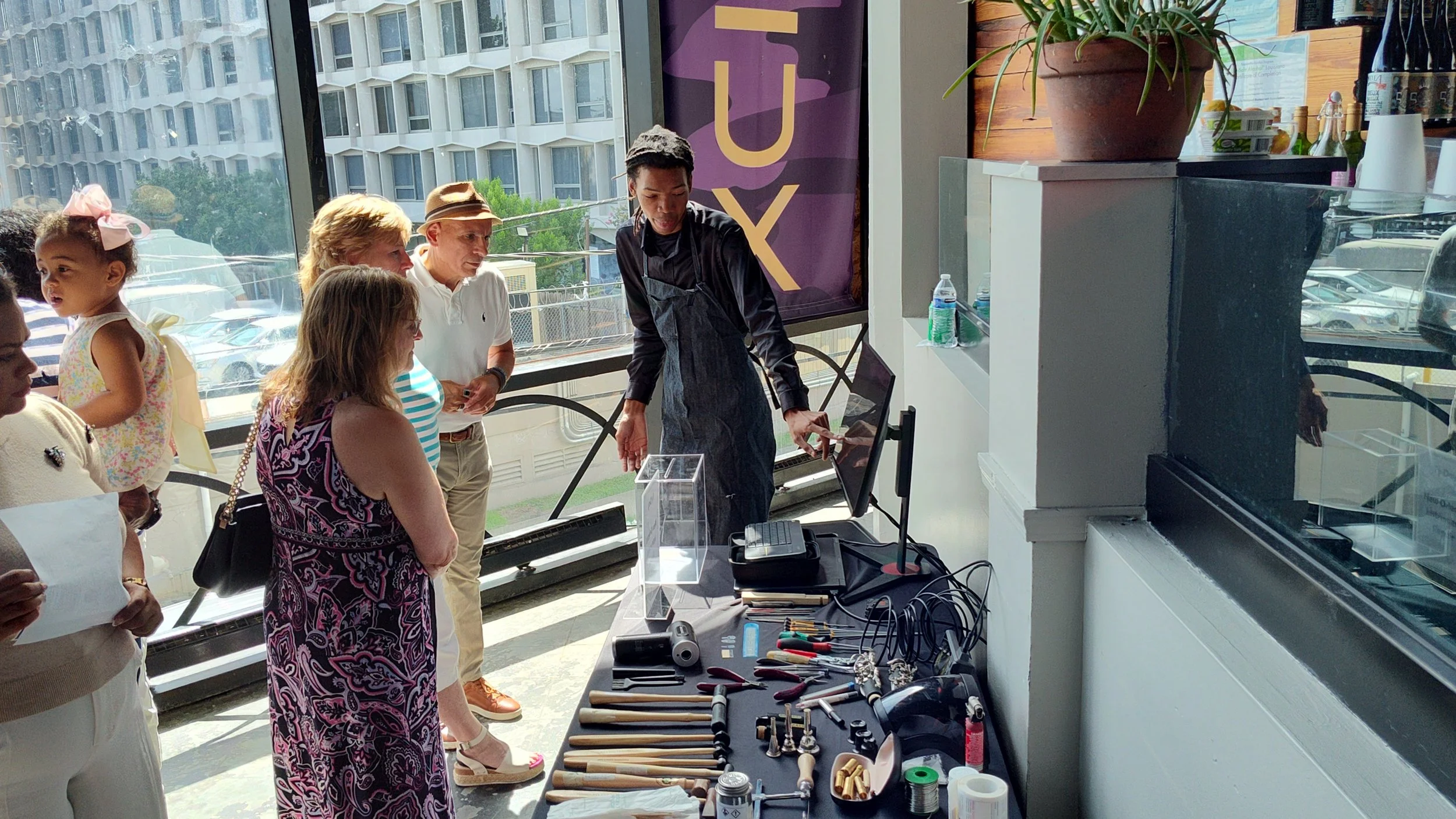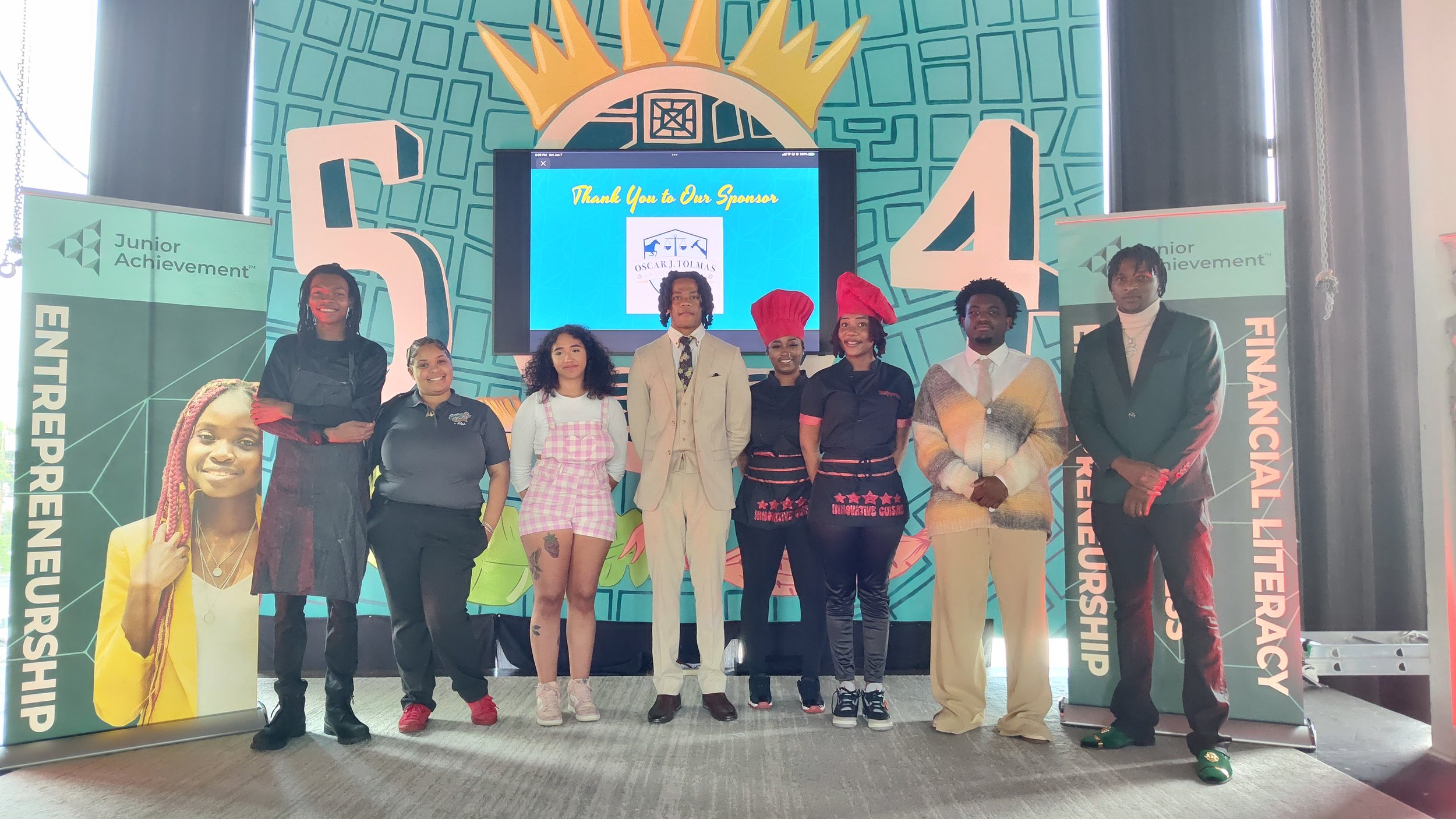Tuning into the Future: Ty’reous Day, JA StartUP, and the Sound of New Orleans
For generations, New Orleans has been defined by its music—the soaring trumpets and trombones of second lines, the rolling thunder of bass drums in brass bands, and the bright, syncopated rhythms of school marching bands that fill the streets with sound. It is a city where music is both heartbeat and heritage, carried through parades, classrooms, and neighborhoods alike.
For a city built on music, New Orleans has a hidden problem: too many young people are trying to learn on broken instruments. Without local repair shops, schools and even professional musicians often have no choice but to ship horns out of state to places like Missouri or Minnesota. That process is expensive, slow, and discouraging for students who deserve working tools of their craft.
“Kids are learning on broken instruments,” said Ty’reous Day, founder of New Orleans Instrument Repair. “It’s discouraging to learn on a broken instrument because you think that you’re messing up. I go to try to play the trumpet, the trumpet’s not working, but as a kid I don’t know that the trumpet’s not working—I think it’s me. Now I’m discouraged from learning and going into music.”
Ty’reous knows that struggle firsthand. A proud graduate of McDonogh 35, he remembers the frustration of showing up to band practice only to find no horns to play. He and a few classmates decided to experiment, tinkering with old instruments until something worked. His band director noticed and connected him with Stafford Adjaye of the Rebirth Brass Band, who taught him the craft of taking horns apart and putting them back together.
That early spark was reinforced by mentors who became like family. Talent and music teacher Hurley Blanchard, one of James Brown’s former drummers, gave him his first hard truth: “You’re playing on these ragged horns. You can make the sound come out, but you’re not going to be a professional player. You’re practicing for failure.” Band director David Jefferson handed him a repair kit and challenged him to make a clarinet work. Lawrence Rollins connected him with more opportunities, including The Roots of Music. Collectively, these men provided Ty’reous with the mentorship that set him on a path toward entrepreneurship: “They gave me extreme confidence to go forward with it,” Ty’reous said. “It wasn’t like I was swimming in the ocean by myself. I had lifeboats behind me.”
Still, knowing how to fix instruments and knowing how to run a business are two different things. Ty admits he was “doing business backwards,” leaving money on the table and working off the books. That changed when he joined JA StartUP, Junior Achievement’s entrepreneurship program for older youth who are entrepreneurs of necessity and culture bearers.
Ty’reous Day pitches his business to judges and community members at the first JA Start UP Showcase where participants competed for up to $25,000 and each received one year of ongoing mentorship. Ty’reous was the top awardee, and he credits his JA mentor for helping him feel proud of his roots and how far he’s come.
“It’s like being hungry all your life, and then you get a meal for the first time,” he said. “I didn’t even know how blind I was. I didn’t know how uneducated I was about business. I can fix horns with my eyes closed, but I didn’t know about paperwork, contracts, service taxes, or how to protect myself legally. With JA StartUP, five or six months of learning put me 20 or 30 years ahead of where I would’ve been otherwise.”
The program also connected him with a mentor, Kwame, who helped him embrace his own story. “Hearing his backstory and how he’s gotten his success together…it helps me understand to not be ashamed of my past and that we grow from our struggles. That doesn’t just define us—it proves us in a way.”
The 2025 JA StartUP Cohort
New Orleans next generation of entrepreneurs and culture bearers.
Today, Ty’reous isn’t just repairing instruments; he’s building a movement to make New Orleans self-sufficient in preserving its sound. He continues to teach through programs like the Louis Armstrong Jazz Camp and The Roots of Music, bridging what he calls the “connection gap” between older teachers and younger students: “I remember how it felt to be in those seats as a kid. I bridge a gap in a way. A lot of my teachers are older and they’re losing connection with the younger generation. I can translate. I’m closer to the kids’ age, and I feel like it’s easy for me to come in and keep them engaged.”
When asked how it feels to know he is preserving New Orleans’ musical legacy, Ty’reous paused. “Still to this day, it’s surreal. I wake up, I do what I need to do, and I reflect, I’m like, whoa. I would have never thought that I would be the one to…carry a torch. But then I realized within myself, no, actually I have to. I’ve been through what was needed to be the person to pass the torch or carry along information. To this day, I’m shocked at everything that has happened. It gives me vision. I can speak with 100% certainty. It makes me feel like the man, for lack of a better word.”




